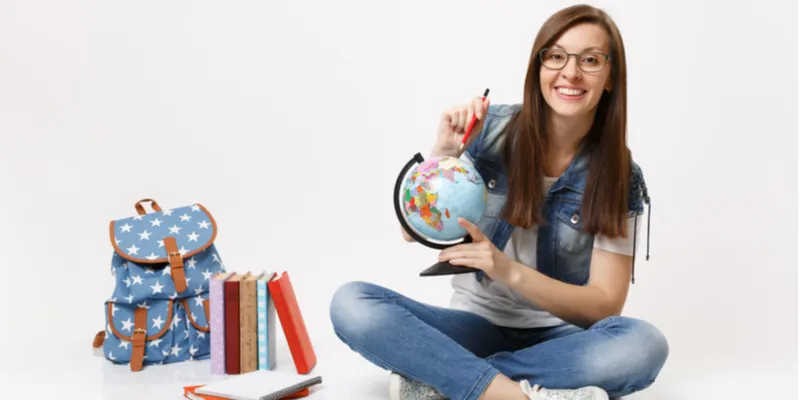Students of the year: Here’s how teacher-learner bonds go beyond textbooks and the classroom
World Students' Day is often observed on A P J Abdul Kalam's birth anniversary on October 15. An educator explains how the connection between students and their teachers has changed over the years
In recent times, the bond between teachers and students has become more than just that of imparting knowledge and learning. The dynamics of the teacher-student relationship has evolved into a holistic bond where the teacher has a comprehensive role to play.
Supportive relationships with teachers can foster students’ engagement in learning activities and help in the progress of academic achievement.
New roles, new ideas

Besides regular textbook learning, a student also needs to be prepared for life
Educationists hold the power to mould the minds of future generations. They coach and guide young people and prepare them to face life. The idea is to give them education for life, and not merely education for a living.
Leaving the past behind
Over the years, a teacher has come to play different roles when it comes to her students.
Traditionally, everywhere (ancient Greece/Ancient India) in the world the teacher was the sole custodian of knowledge. The educator would educate his pupils to be good citizens to build a powerful army, to learn about life and living by acquiring knowledge on the ancient languages, Sciences, Astronomy, Politics, etc.
As a matter of fact, the children were always under the influence of one teacher at a time. They would usually live in the premises of the school, expected to perform chores for the teacher irrespective of the student's station in life.
The educator would have to teach everything he knew and the student relied wholly on the teacher for knowledge. The teacher not only taught academic lessons but also played the crucial role of a guide and a friend in a child’s life.
This was primarily an oral tradition. With the advent of books, the dynamics changed however books were available only to few until much later.
The online classroom
Then with the discovery of the computer, and the internet, information became easily accessible to most if not all, so the influx of information replaced dissemination of 'knowledge'.
Today, with the advancement of technology, information is available at the tips of one's fingers but the skill sets required for a child to separate the necessary information from the superfluous ones is not quite present.
It is here that the role of the educator underwent a greater transformation. Now, an educator has become a facilitator - facilitator of knowledge.
A friend and mentor

The relationship between teachers and students have changed over the years
The access to information, freeing up of the economy and the merging of gender-specific job opportunities started to influence the role of the teacher too.
As life began to get complex, the role of the teacher evolved to that of a counsellor, mediator, curriculum setter and as education became more need-centric, they also became content specialists.
Essentially, teachers began to assume a wide range of roles to support the school and the success of their students. They have become resource providers, classroom supporters, learning facilitators, mentors and catalysts for change.
Some leadership roles are formal with designated responsibilities. Other more informal roles emerge as teachers interact with their peers. The variety of roles ensures that teachers can find ways to lead that fit their talents and interests. Regardless of the roles they assume, teachers shape the culture of their schools and improve student learning.
A teacher wears many hats
Teachers also play an important role in the management of classroom bullying considering they are in an influential position as educators and agents of socialisation. They help promote healthy relationships among students and prevent negative interactions.
Further, as rules and laws on bullying/harassment came into place the educator slowly started to learn to wear multiple hats paving way for lessons on EQ as opposed to textbook learning. As a result, teachers/educationists have started focusing on promoting emotional intelligence among children.
Emotional Intelligence

Classes are being held online amid the pandemic
Managing one’s emotions is the most important trait of a strong person. People who manage their emotions well are called emotionally intelligent people.
Emotional intelligence is the ability to recognise one's emotions, understand others, and realise how emotions affect people around. This understanding of emotions is instrumental in forming healthier relationships, achieving greater success at work, and leading a fulfilling life.
More than book knowledge
Today, the educator is no more the sole custodian of knowledge, so unless he or she changes his mindset and learns to be tolerant, inclusive and use his sense of judgement, it will give rise to conflicts with his students.
Nowadays a teacher must consider the family background of the child, be aware of the student's thought processes, learning styles, and set academic goals and create a connection between all these aspects.
A rapid and fundamental change in dominant value systems, social structure, leadership has in the shift in dynamics in the student-teacher relationship.
(Images credit: Shutterstock)
Edited by Asha Chowdary
(Disclaimer: The views and opinions expressed in this article are those of the author and do not necessarily reflect the views of YourStory.)









